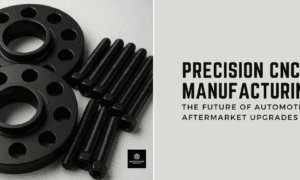In today’s world, sustainability and environmental consciousness are at the forefront of many industries, including the automotive sector. As the demand for vehicles continues to rise, so does the need for innovative recycling technologies to reduce the environmental impact of automotive production and disposal. This article explores the latest advancements in recycling technologies that are transforming the automotive industry into a greener, more eco-friendly one. We will delve into various recycling methods and their applications, as well as the benefits they offer in terms of resource conservation and pollution reduction.
Introduction
The automotive industry has long been associated with environmental challenges, including extracting raw materials, energy-intensive production processes, and disposing of end-of-life vehicles (ELVs). However, as society becomes increasingly aware of the pressing need to reduce carbon emissions and minimize waste, automakers are investing in innovative recycling technologies to make their operations more sustainable.
In this context, waste recycling equipment and material processing equipment are crucial in achieving the automotive industry’s sustainability goals. These technologies enable the efficient recovery of valuable materials and the responsible disposal of automotive waste, contributing to a cleaner and greener future.
This article will discuss some of the groundbreaking recycling technologies that are making waves in the automotive industry, helping it transition towards a more sustainable and environmentally friendly future.
Closed-Loop Manufacturing
One of the most promising developments in the automotive industry is the concept of closed-loop manufacturing. This approach involves recycling and reusing materials within the manufacturing process. Closed-loop manufacturing minimizes waste and reduces the need to extract new raw materials, which significantly impacts the environment and cost savings.
For instance, automakers are increasingly using recycled aluminum in the production of vehicle bodies, conserving resources and reducing the carbon footprint associated with aluminum production. In addition to aluminum, closed-loop manufacturing can also be applied to plastics, steel, and other materials used in automotive production.
Battery Recycling for Electric Vehicles (EVs)
As the automotive industry undergoes a shift towards electric vehicles (EVs) to reduce greenhouse gas emissions, the recycling of lithium-ion batteries becomes paramount. These batteries are essential components of EVs, and their disposal poses environmental challenges due to the potential release of hazardous materials.
Battery recycling facilities equipped with state-of-the-art material processing equipment are emerging as a solution to this problem. These facilities can efficiently dismantle and recycle lithium-ion batteries, recovering valuable materials such as lithium, cobalt, and nickel. Recycling these materials reduces the demand for mining and processing new resources and lowers the environmental impact associated with battery production.
End-of-Life Vehicle (ELV) Recycling
End-of-life vehicles, often referred to as scrap cars, generate a significant amount of waste and environmental concerns. The traditional practice of sending ELVs to landfills is unsustainable and wasteful, considering the valuable materials that can be salvaged from these vehicles.
Modern ELV recycling facilities utilize advanced waste recycling equipment to disassemble and recycle vehicles efficiently. Components such as engines, transmissions, and tires are refurbished or repurposed, while materials like steel, aluminum, and plastics are recovered and sent back into the manufacturing supply chain. This reduces the need for virgin materials and decreases the environmental impact of automotive disposal.
3D Printing with Recycled Materials
3D printing is gaining traction in the automotive industry, offering the potential for more sustainable manufacturing processes. The ability to use recycled materials in the 3D printing process makes it even more eco-friendly. Automakers can reduce the consumption of virgin resources by employing waste recycling equipment to convert discarded plastics and other materials into printable filaments.
3D printing also allows for the creation of complex and lightweight components, which can improve fuel efficiency and reduce emissions in traditional combustion engine vehicles. Additionally, this technology enables on-demand production, reducing excess inventory and waste.
Tire Recycling Innovations
Tires are a crucial component of any vehicle, and their disposal has been a significant environmental concern. Traditional tire disposal methods, such as landfilling or incineration, are unsustainable and can lead to pollution. However, innovative recycling technologies are changing the game.
Tire recycling facilities equipped with advanced material processing equipment can shred and process old tires into valuable materials like rubber crumbs, which can be used in various applications, including road construction and manufacturing. This reduces the environmental impact of tire disposal, conserves resources, and reduces the need for new tire production.
Smart Sorting and Separation Systems
Effective recycling requires the efficient sorting and separation of materials. In the automotive industry, this becomes crucial when dealing with complex products like vehicles that contain a wide range of materials. Smart sorting and separation systems, often powered by artificial intelligence and machine learning, can identify and separate different materials rapidly and accurately.
These systems are invaluable in recycling facilities, ensuring materials are recovered efficiently and with minimal contamination. This technology enhances the quality of recycled materials and reduces the energy and resources required for their processing.
Fuel Cell Recycling
Fuel cells are increasingly used in automotive applications, particularly hydrogen fuel cell vehicles. These fuel cells consist of precious materials such as platinum, which are expensive to mine and refine. Recycling fuel cells have the potential to recover these valuable materials, reducing the need for new resource extraction.
Advanced recycling methods involve disassembling the fuel cells and extracting the precious metals through specialized processes. These recovered materials can then be used to manufacture new fuel cells or sold in secondary markets, providing economic incentives for recycling and reducing the environmental footprint of fuel cell technology.
Carbon Fiber Recycling
Carbon fiber-reinforced composites are becoming more prevalent in the automotive industry due to their lightweight and high-strength properties. However, the production of carbon fibers requires significant energy and resources. Therefore, recycling carbon fiber components is crucial for sustainability.
Innovative recycling technologies for carbon fiber involve breaking down used or damaged composite parts and reclaiming the carbon fibers. These reclaimed fibers can then be used to manufacture new components or integrated into other industries, such as aerospace or sports equipment manufacturing. Carbon fiber recycling not only reduces waste but also conserves energy and resources in the production cycle.
Final Thoughts
In conclusion, the automotive industry is undergoing a significant transformation towards sustainability, driven by innovative recycling technologies. From closed-loop manufacturing to battery recycling for EVs, these advancements reduce the industry’s environmental footprint and contribute to a greener future.
Waste recycling and material processing equipment are critical components of this transition, enabling automakers to recycle and reuse materials efficiently. As these technologies continue to evolve, we can expect further reductions in resource consumption, waste generation, and pollution associated with the automotive industry.
To stay at the forefront of sustainability, automotive companies must continue to invest in and adopt these innovative recycling technologies, ultimately leading to a greener and more environmentally responsible future for the industry.
Read More From Techbullion



































